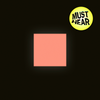Don’t Cry for Bon Iver
Justin Vernon skewers his own tortured artist myth on ”Speyside,” the standout track from his new bare-bones EP.

Justin Vernon skewers his own tortured artist myth on ”Speyside,” the standout track from his new bare-bones EP.
